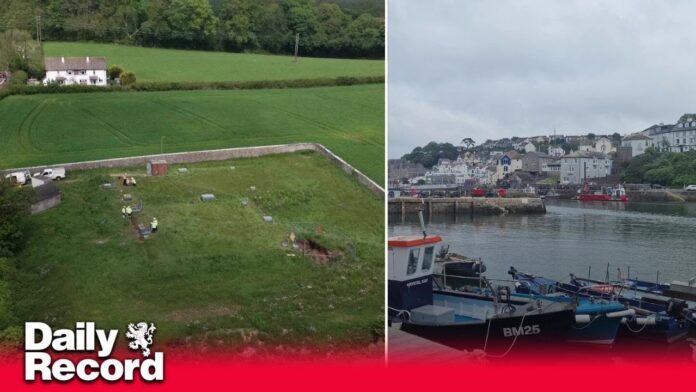South West Water works to restore safe water supply while businesses and residents deal with the aftermath of the cryptosporidium contamination
Residents of Brixham continue to avoid tap water despite South West Water’s (SWW) efforts to rectify a parasite outbreak that left many ill. Kayley Lewis, among those affected, vows never to drink tap water again after suffering severe symptoms, including diarrhoea, vomiting, and stomach cramps, due to cryptosporidium found in the Hillhead reservoir.
The outbreak, which has resulted in at least 46 confirmed cases and an additional 70 suspected cases of gastrointestinal illness, has deeply shaken the community’s trust in their water supply. “I can’t trust them [South West Water] again,” Lewis stated, emphasizing the severe impact of the contamination on her health and that of her children.
South West Water has issued repeated apologies and assured residents that they are working “around the clock” to ensure safe water. David Harris, SWW’s director of drought and resilience, indicated that the boil water notice could be lifted by mid to late next week. Currently, 14,500 households in the Alston supply area can safely drink tap water without boiling it. However, 2,500 homes in Hillhead, upper parts of Brixham, and Kingswear must still boil their water before consumption.
The economic impact of the outbreak has been significant. Steve Price, owner of the Station Guest House B&B near Brixham, reported losing approximately £2,000 in bookings due to the water crisis. Customers cancelled reservations, citing fears over the water safety. Price has also spent considerable time and money emptying and cleaning water tanks to protect his guests, further adding to his financial losses.
Local businesses, particularly those in the hospitality sector, have suffered. Sally Tollon, an employee at a local fish and chip shop, described the usually bustling Brixham harbour as a “ghost town.” The shop’s daily earnings have halved, reflecting the broader economic strain on the community. “We’re really quiet… you can see it’s empty because people are frightened to come down because of the water situation,” Tollon explained.
The crisis has not only impacted businesses but also the daily lives of residents who now rely on bottled water. The disruption and health risks have led to a significant loss of confidence in SWW. Despite the company’s efforts to restore safe water and reassure the public, the community’s trust has been deeply eroded.
Restoring confidence in the water supply will be a long-term challenge for SWW. The company must not only resolve the immediate contamination issue but also implement measures to prevent future occurrences. Transparent communication and consistent safety assurances will be crucial in rebuilding trust.
Analysis
The parasite outbreak in Brixham underscores the critical importance of water safety and its far-reaching impacts on public health and local economies. From a sociological perspective, the incident highlights how environmental health issues can undermine community trust and disrupt daily life. The widespread distrust in tap water reflects broader concerns about public infrastructure and corporate accountability.
Economically, the contamination has had a pronounced effect on local businesses, particularly in the hospitality and tourism sectors. The financial losses reported by business owners like Steve Price and the reduced earnings at local establishments demonstrate the ripple effect of environmental health crises on local economies. The economic recovery of these businesses will depend on the swift restoration of safe water and effective communication from SWW.
Politically, the situation may prompt calls for stricter regulatory oversight of water utilities. Public health incidents like this one can lead to increased scrutiny of corporate practices and regulatory frameworks governing water safety. Policymakers might face pressure to enforce more rigorous safety standards and ensure better preparedness for potential contamination events.
From a health perspective, the outbreak has raised awareness about the risks associated with waterborne pathogens. Cryptosporidium, a parasite that causes gastrointestinal illness, can be particularly dangerous for vulnerable populations, including young children and the elderly. Public health responses need to focus on both immediate containment and long-term preventive measures.
Locally, the community’s resilience and response to the crisis will be key to recovery. Community support networks and local health services play crucial roles in mitigating the impact of such outbreaks. Ensuring that residents have access to accurate information and resources to manage their health is essential.
Gender and minority perspectives should also be considered. Health crises often disproportionately affect marginalized groups who may have less access to health care and resources. Ensuring equitable access to safe water and health services is vital in addressing the needs of all community members.
The theoretical implications of the Brixham water crisis suggest a need for robust environmental health policies and practices that prioritize public safety. Social theories on trust and risk management emphasize the importance of transparency and accountability in public services. Rebuilding trust in SWW will require not only technical fixes but also a commitment to transparent and responsive governance.
In conclusion, the cryptosporidium outbreak in Brixham has highlighted significant challenges in water safety, public health, and community trust. Addressing these challenges requires coordinated efforts from SWW, public health authorities, and the community to ensure a safe and reliable water supply and restore confidence in public infrastructure.
